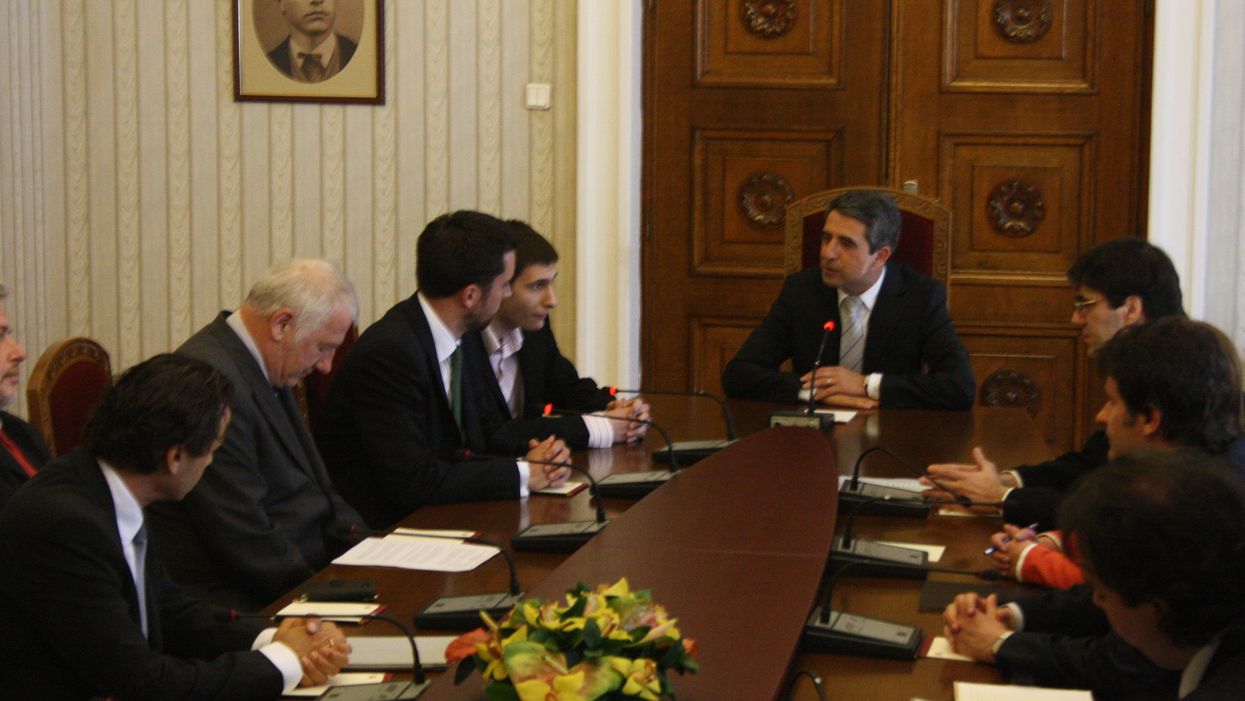Garber has worked on overseas elections for 35 years and is on the board of the Election Reformers Network, a nonprofit founded by such international specialists now working to improve American electoral systems.
Having been involved with several similar efforts, my colleague wanted to know whether, given the short time frame, I thought such an initiative was feasible. In those days, right after the fall of the Berlin Wall, just about anything seemed possible. Soon, I was assisting the activists in training prospective election monitors and designing a plan for assessing the accuracy of the vote count.
For election day, the newly formed Bulgarian Association for Fair Elections deployed more than 10,000 volunteers to polling sites throughout the country. Within hours of the polls closing, their parallel vote tabulation confirmed a narrow victory by the ruling Socialists — much to the disappointment of the activists, most of whom had voted for the opposition even as they performed their monitoring responsibilities in a nonpartisan fashion.
My experiences in Bulgaria and elsewhere are receiving renewed interest as the United States prepares for this presidential election.
Ashley Quarcoo and Tom Carothers sought to explain "What Washington Can Learn About Elections — From Abroad" in Foreign Policy in February. Their piece stemmed from a USA Today poll last summer that found nearly 40 percent of Americans said that, if the candidate they support loses in November, they will have little or no confidence in the integrity of the election process.
The reasons for this vary. Some question the legitimacy of a seemingly antiquated Electoral College. Others cite ID requirements in many states preventing many prospective voters from exercising their franchise. And of course, the malign consequences of disinformation and fake news, whether promoted by foreign or domestic sources, have compromised our public discourse.
These longstanding concerns have only been exacerbated by the complications of organizing elections during a pandemic.
As a short-term fix, I suggest formation of a bipartisan group that builds on the evolution of domestic monitoring efforts across the globe over four decades. The Philippines National Movement for Free Elections is generally credited for crystalizing the concept of nonpartisan election monitoring. It formed in 1984 and played a major role in uncovering and exposing fraud during the 1986 snap presidential election. Relying on its reports, the international community refused to accept the results announced by the election commission. Following massive street demonstrations, Ferdinand Marcos, who had ruled for 21 years, was forced to leave the country.
Hundreds of organizations in countries across the globe have since sought to emulate and expand upon the Phillipine model. In 2012 the United Nations issued a declaration describing how nonpartisan election observation enhances electoral integrity by deterring and exposing irregularities and fraud — and promotes public confidence and citizen participation in government and public affairs.
In the United States, political parties and the media historically have played the principal roles in monitoring elections. Under the 1965 Voting Rights Act, the federal government assigned monitors to specific jurisdictions, mostly in the Deep South, where there was evidence voters would be precluded from casting ballots or their votes would not be honestly counted. These monitors proved critical in increasing African-American turnout and in transforming an apartheid-like system in Southern states.
Today's challenges require a different approach. Our collective concerns relate to a lack of confidence many have in the electoral process and fears that losing candidates and their supporters will refuse to accept their defeat. Thus, while monitors at polling places remain critical and courts must continue to play their assigned role, we need a high-profile, non-governmental effort to buttress support for the electoral process.
Because of American parochialism, this confidence-building role cannot be fulfilled by international observers. Instead, a national Commission for Credible Elections should be established, which would include former prominent Cabinet secretaries and members of Congress of both parties, former federal and state judges, and leaders from the private sector and civil society organizations.
A small staff would facilitate the work of the commission, which would convene monthly between August and December. After each meeting it would issue a public assessment of the process — informed by information solicited from election administrators, candidates and civil society organizations regarding specific aspects of the election process.
Bipartisan commissions formed after the 2000 and 2012 elections offered many constructive recommendations, and several were adopted through legislation or administrative practice. Another example of an independent organization that benefits democracy now is the Commission on Presidential Debates, which works to ensure general election debates are held every four years for the benefit of the electorate; it receives no funding from the federal government or from any political entity with an interest in the election outcome.
Skeptics will undoubtedly question the feasibility of such an effort. Is there time to recruit the high-profile personalities? Who would fund the commission? Would it not duplicate efforts already underway? Are we not too preoccupied by the need to respond to Covid 19's complication of the election to justify a parallel initiative?
I heard many similar questions during my years overseas. Timeframes are too short to mobilize. Funding for basic infrastructure is not available. Organizational space and political realities dictate prioritizing immediate economic and health needs over more ephemeral concerns like democracy.
And yet, the realization that electoral failure is not an option has stimulated passionate activists to mobilize fellow citizens under much more formidable circumstances. In the United States, we may not need a nation-wide mobilization of millions of nonpartisan monitors on Election Day, but the 2020 election could definitely use the encouragement of citizens to participate and an authoritative assessment of the process.



















Trump & Hegseth gave Mark Kelly a huge 2028 gift